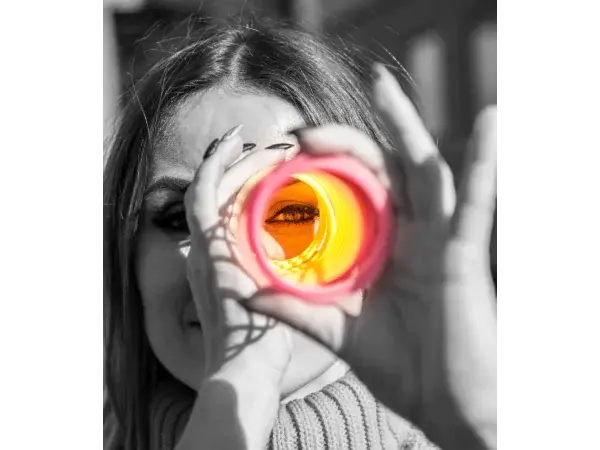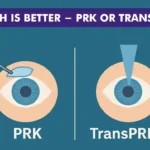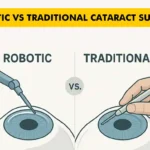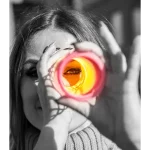Are you at risk for glaucoma?
Globally, more than half of glaucoma cases are undetected. 9 out of 10 cases of glaucoma may remain undiagnosed. No wonder glaucoma is called the ‘silent thief of eyesight’. It is often asymptomatic and escapes undetected until it’s too late! Read on to know more.
What is glaucoma?
Glaucoma is defined as a group of eye conditions that cause damage to the optic nerve. This nerve is responsible for sending visual information to the brain, crucial for clear vision. Usually, glaucoma is caused by increase in eye pressure, which damages the optic nerve. However, glaucoma may occur in some cases even if the eye pressure is normal. Glaucoma can occur at any age but is more common in older adults. It is one of the leading causes of blindness for people over the age of 60. Hazy or blurred vision and headache are among the early signs of Glaucoma.
The two types of glaucoma called open-angle glaucoma and angle-closure are quite common. Both are equally dangerous and require timely treatment to avoid complete vision loss. Being aware of the risk factors helps in diagnosing glaucoma at an early stage. It isn’t true that glaucoma can be cured, it can only be managed through medication or surgical implants.
Are you at risk?
To answer how is glaucoma caused, it is crucial to understand that rather than one root cause, several multiple factors make one prone to glaucoma. The common risk factors associated with glaucoma are:
- Ageing: People above the age of 40 are more prone to developing glaucoma. Further, it is most predominantly detected in people nearing their 60s.
- Family history of glaucoma: The most commonly occurring type of glaucoma called open-angle glaucoma can be inherited. Hence, if your family members have a medical history of glaucoma, your chances of suffering from the same increase by four to nine times.
- Asian: People with Asian family lineage are found to be at a higher risk of angle-closure glaucoma. This type of glaucoma is less prevalent than open-angle glaucoma.
- Eye injury: Sometimes, an eye injury can lead to a type of glaucoma called open-angle glaucoma. The condition may arise immediately after getting injured or a few years later. Injuries due to sports like boxing, baseball, and cricket that impact the eye’s drainage system can often lead to glaucoma.
- Use of steroids: There are higher chances of glaucoma in people who are linked to steroid use. There are several studies that establish this fact.
Secondary risk factors for glaucoma include:
- Hypertension
- High myopia (minus power)
- High hypermetropia (plus power)
- Diabetes
- Sickle cell anemia
- Migraine
- Thyroid disease
If you identify with most of the risk factors mentioned above, it is all the more crucial for you to keep an eye on unusual signs related to eye health.
Early signs of glaucoma that you must look out for include:
Generally, Glaucoma remains asymptomatic till the condition grows worrisome, there are a few things you can be mindful of:
- Gradual blind spots in your peripheral vision (side vision). In advanced stages, difficulty in the central vision as well.
- Headache and eye pain
- Nausea
- Blurred or hazy vision
- Redness in the eye
- Halos and glares
In case of any of these symptoms of glaucoma in eyes, you should immediately reach out to an eye specialist for a glaucoma test. Also, even if you do not belong to the high-risk group, it is better to get a comprehensive eye exam at least once in 6 months. Doing so will help in keeping you away from facing serious eye-related troubles.
How to manage and treat glaucoma?
Usually, open-angle glaucoma can be treated with the help of a combination of surgical and non-surgical treatments. Whereas, in the case of close-angle glaucoma, Glaucoma laser surgery is the way out. Modern-day drug therapy, if initiated promptly can control most cases of glaucoma, preventing surgical intervention.
Eye drops: The drops either reduce the production of fluid in the eye or clear out its passage. Before getting any eye drops for glaucoma, make sure to discuss your medical history in detail, especially if you have had a heart or lungs related problem. Otherwise, the drug interaction may cause some side effects.
Medication: Based on the condition, your ophthalmologist may also prescribe oral medication. Such drugs contain beta-blockers or carbonic anhydrase inhibitors that can pace down the production of the fluid in the eye or enhance drainage.
Advanced glaucoma surgery: The laser procedure aims at removing the fluid blockage in case of angle-closure glaucoma and slightly increasing the flow of fluid from the eye when there is open-angle glaucoma.
Bottom Line
Regular eye check-ups can help eliminate not just glaucoma but other eye problems as well. For a thorough eye check-up, you should visit a verified and experienced eye specialist. Reach out to Centre For Sight to get expert consultation without any hassle. All our eye doctors and surgeons are skilled in treating all kinds of eye diseases or disorders.





